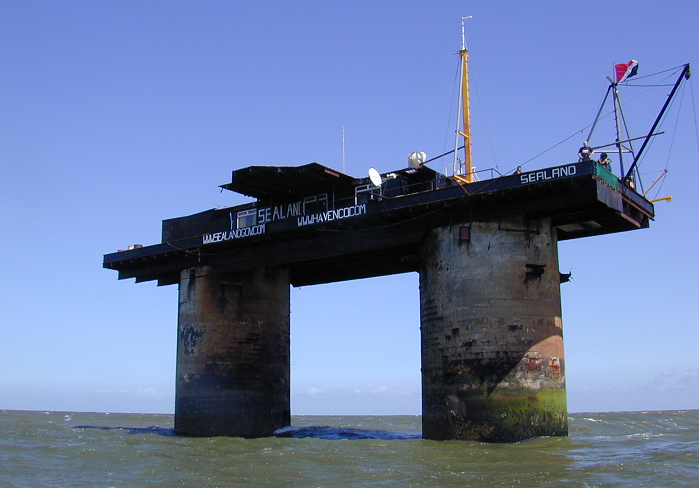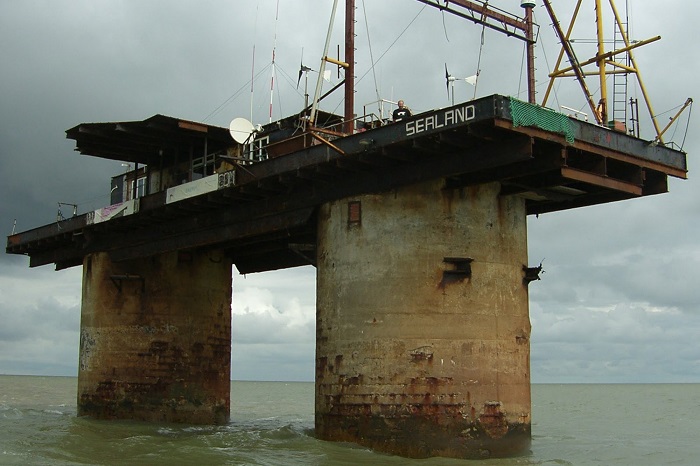New Land, New Utopias – Part II: Micro Nations
What is a nation? Surprisingly enough, international law doesn’t give a satisfying answer to that. So why not invent one?

Surprisingly, and especially peculiar in times of invigorating nationalisms, there never has been a clear legal definition of what a nation is. Most commonly, the proof of legal and practical existence for a nation is UN-recognition, but this is rather a way of acting than a defined rule. Additionally, multiple countries, (such as The Republic of China/Taiwan or Kosovo) are recognized by a range of UN countries while numerous others dismissed their claim.
The Montevideo Convention, set at a conference of the American States in 1933, tries to stipulate the definition, rights and duties of a state. Its first article claims four criteria for statehood:
A permanent population, a defined territory, a government and the capacity to enter into relations with other states. Yet these factors apply to more than the 193 countries officially recognized by the UN at the time being. And they are both numerous and diverse. From displays of narcissismand eccentric phantasies to art projects, hippie-communes and rather ambitious role-play games to autonomous regions.
Micro nations – not to be confused with microstates, recognized states simply of small size like Andorra or Luxembourg in Europe – are self-proclaimed and not officially recognized. Yet some of them have been around for quite a while despite the ignorance and sometimes the resistance of UN or the country their national territory technically belongs to.
The Principality of Sealand, 12 km off the coast of Suffolk, England, is one of the most famous examples. Its territory is a sea fort abandoned after Word War II, with a surface of 25 km2. British pirate radio broadcaster Paddy Roy Bates occupied the platform in 1967, initially in order to set up a pirate radio emission from outside of British national territory. That never happened. Instead, Bates declared the independence of “The Principality of Sealand”, claiming the platform was in international waters and thus not under British jurisdiction. During the years, he introduced a constitution, a national flag, anthem, currency and passports. Titles of nobility as well as knighthood are for sale on the state’s official website, offering the “Standard Noble Title pack” and the “Premium Noble Title Pack”, with the option to purchase a piece of Sealand territory – “for only 19,90 pounds!” – and the advice to check one’s Junk folder after filling in and sending the nobility form.
But of course there are more serious attempts to state-building. Christiania in the middle of Denmark’s Capital Kopenhagen, is, within today’s traveler communities, mostly known as a place where you can smoke weed legally. Yet the background of this enclave is so much more complex and impressing. The area that is known today as the Freetown Christiania formally belonged to the military. After Word War II, the barracks where finally abandoned in 1967 and stood empty for four years after that, occasionally giving shelter to homeless people. In 1971, Copenhagen inhabitants pulled down the fences and occupied the area. Though unorganized in the first place, the act was seen as a protest against unaffordable rends in Denmark’s capital. In September of the same year, the journalist Jacob Ludvigsen declared the foundation of the “Freetown Christiania” and supported it with a series of articles about the idea and spirit of Christiania. The commune-like micro-nation that evolved was closely linked to the hippie- and the squatter scene, with all decisions made by the community in public assemblies, a strong focus in arts, meditation and yoga and the ban of certain products (such as Coca Cola) within the borders of Christiania. The squatters and hippies made laws. Sharp weapons, violence, theft and hard drugs and cars are forbidden. Cannabis is legal and soled on the streets (unless in the rest of Denmark). Yet the important point about Christiania is may be not so much it’s laws but it’s habits: The Freetown has always been a refuge for all kinds of society expats, including them in the daily political and social process and treating them as valuable parts of the community. Several Danish governments have, during the years, tried to clear the area. Without success – Christianians and their supporters would just fight back too fiercely.

After seemingly endless legal battles, a victory for the Danish government and a subsequent trade-off, the inhabitants of the Freetown started to officially buy the 34-hectare area from the state.
There’s countless other examples of places that where more or less invented and put into existence by obstinacy-legitimation. Some are jokes, some are pointy social criticism, and some exercises in utopianism. But even though their required permanent population seldom reaches to two-digit numbers, it seems- may be today more than ever – like a good idea question the way we decide to live together, to rethink the idea of nations – a construct that is, as we know – not even legally defined.
In the 21th century and against the background of the wars in the middle east we should rethink the concept of nations as a result of the World War I as the French architect Leopold Lambert demanded in his Manifesto for an Alternative Cartography. The early Arab uprisings gave potent form to the ideals of transnational political community supplanting the limits of nation-states.

